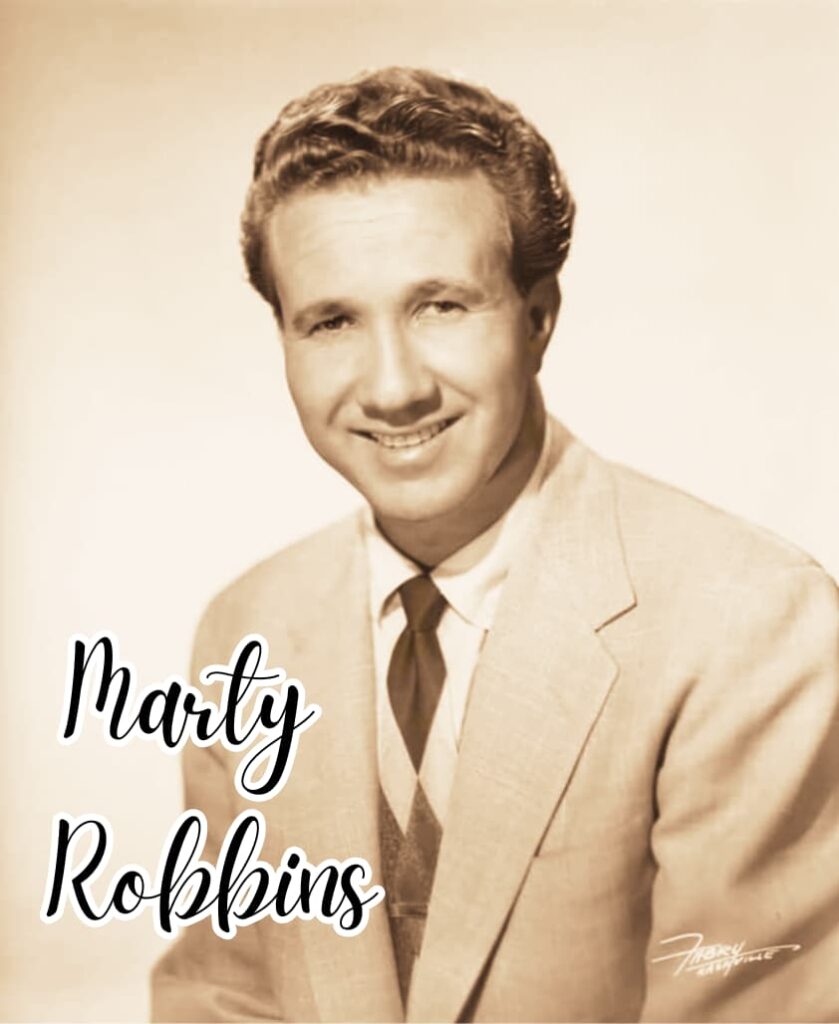
A Nostalgic Journey to a Tragic End Under the Cottonwood Tree
“Cottonwood Tree” is a tragic tale of a man’s fate, sealed by a quick draw and the unforgiving judgment of a frontier town. It paints a picture of a cowboy who finds himself at a crossroads, knowing his time is short and seeing his final resting place in the shadow of a lone tree. This poignant ballad, released in 1966 on the album The Drifter, is a perfect example of the masterful storytelling that defined Marty Robbins‘s career. The album itself, a classic for any fan of Western-themed country music, debuted on the Billboard country album chart on September 3, 1966, where it peaked at No. 6 and remained for a total of 26 weeks. While the song didn’t have its own individual chart position, it was a vital part of a record that captivated audiences with its vivid narratives. The song was written by Bobby Sykes, a long-time collaborator and friend of Robbins.
There’s a quiet sorrow to the way the song unfolds, a feeling that will be instantly familiar to anyone who ever sat on a porch swing on a warm summer evening, listening to the tales of the Old West on a crackly radio. The song transports you back to a time when a man’s reputation was his currency and a game of cards could turn deadly in the blink of an eye. You can almost feel the dust on your boots as the protagonist rides into Tucson, a dusty town full of promise and peril. The story begins with a simple, almost mundane setting: a game of poker in the Miner’s Saloon. But what starts as a friendly wager quickly spirals into a tense confrontation. The young cowboy who loses more than he can afford lashes out, accusing our hero of cheating. In a moment of pure, raw instinct, a gunfight ensues. But this isn’t a glorious duel; it’s a desperate act of self-preservation. Our hero’s draw is faster, and the young man falls, shot three times “close to the heart.”
The real heart of the song, the part that lingers long after the music fades, is the chorus. The narrator is now a wanted man, fleeing the town that wants to hang him. The “cottonwood tree” becomes a recurring, haunting motif—a silent witness to his fate. It’s a metaphor for the end, a symbol of the justice he knows is coming. He sings, “Oh cottonwood tree are you waiting for me, waiting to take me away?” It’s a question not of fear, but of acceptance. He doesn’t plead his innocence to the townsfolk; he knows their minds are made up. Instead, he speaks to the tree, a natural and ancient part of the landscape that seems to understand his sorrow. This is the tragic poetry of Marty Robbins‘s “gunfighter ballads.” They aren’t just action-packed stories; they are deeply human explorations of jealousy, honor, and the heavy burden of consequences. The raw emotion in Robbins’s voice, a voice that could be both tender and hard as nails, perfectly captures the weary resignation of a man who knows his time is up. It’s a song that makes you feel for the cowboy, even though he’s a killer. It reminds you that in the unforgiving West, a wrong move could cost you everything, and a single cottonwood tree might be the last thing you ever see.